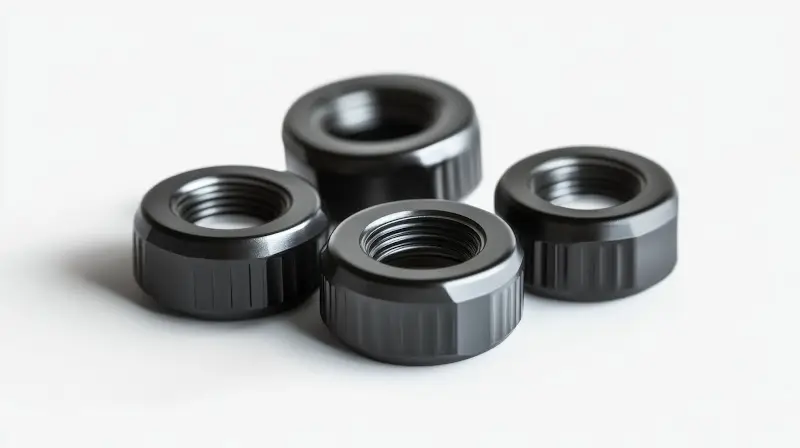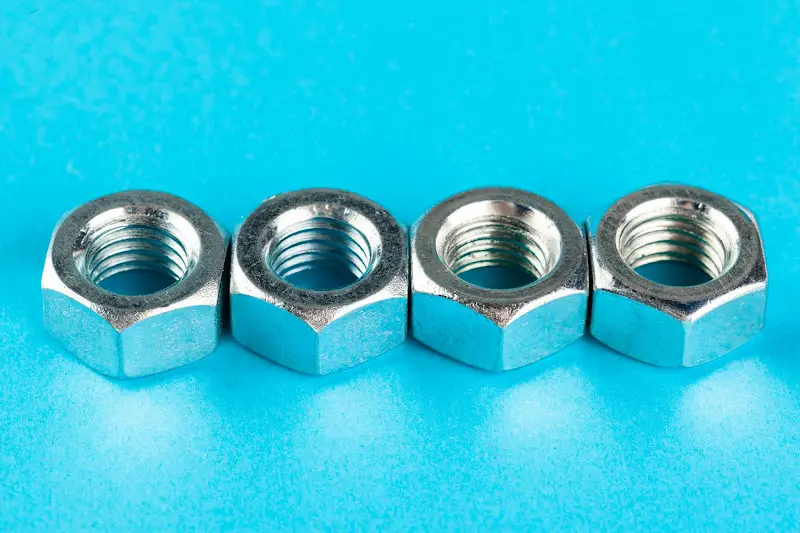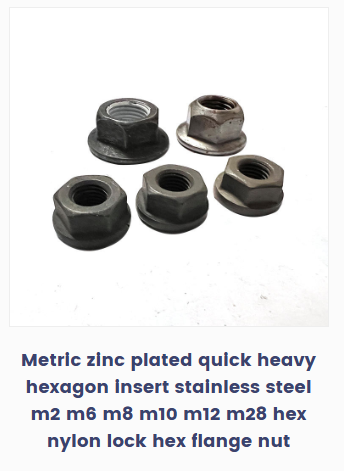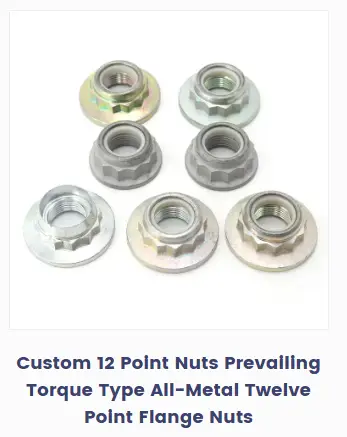Nylon Lock Nut vs Metal Lock Nuts: Difference in a Nutshell
When comparing nylon lock nuts vs metal lock nuts, the main difference lies in how they resist loosening: nylon lock nuts use a nylon insert for grip, while metal lock nuts rely on all-metal deformation for strength and vibration resistance.
Both serve the same purpose of keeping fasteners secure, but their applications, durability, and performance differ in important ways.
Learn more by reading the article below.
Why Lock Nuts Matter in Industry
Lock nuts are widely used across industries such as automotive, wind power generation, and heavy machinery.

The challenge is preventing loosening caused by vibration, temperature changes, or heavy loads.
Whether you’re weighing a metal lock nut vs nylon lock nut, the choice impacts long-term reliability.
CNRL Fastener, a trusted OEM supplier, manufactures both nylon and metal lock nuts for demanding applications.
With proven collaborations with ZF, TENNECO, and FAW, CNRL demonstrates the quality and expertise required by global leaders in transportation and renewable energy.
Nylon Lock Nut vs Metal Lock Nut: Core Differences
A nylon lock nut, often called a nylon-insert lock nut, contains a polymer ring that deforms around the bolt threads.
This resistance prevents loosening under moderate vibration.
In contrast, an all-metal lock nut vs nylon lock nut comparison shows that metal versions achieve locking by creating intentional thread interference through deformed sections of the nut.
This gives them superior heat and vibration resistance.
Nylon Lock Nut and Metal Lock Nuts: Quick Comparison Table
| Feature | Nylon Lock Nut | Metal Lock Nut |
| Locking Mechanism | Nylon insert grips the threads | Deformed metal sections create interference |
| Temperature Resistance | Up to ~120°C | Withstands extreme heat |
| Vibration Resistance | Good for moderate vibration | Excellent for high vibration |
| Reusability | Limited (nylon wears down) | High and can be reused multiple times |
| Corrosion Protection | Nylon offers slight protection | Needs coating/alloy for corrosion resistance |
| Common Applications | Automotive, consumer products | Wind turbines, engines, heavy machinery |
This table makes it easier to see the differences in lock nut metal vs nylon selection at a glance.
Lock Nut Metal vs Nylon: Where Each Excels
When deciding between lock nut metal vs nylon, consider the working environment.

- Automotive applications often rely on nylon lock nuts for suspension, chassis, and interior assemblies because they balance grip with cost efficiency.
- Wind power generation favors metal lock nuts in turbines and gearboxes, where vibration and heat demand maximum reliability.
- Heavy-duty machinery also benefits from the resilience of metal lock nuts in high-load conditions.
CNRL Fastener’s product range ensures customers don’t have to compromise.
Whether it’s precision nylon inserts or high-strength all-metal nuts, each product is engineered for global standards and tested for safety.
What is the Best Type of Locking Nut?
The answer depends on your application.
For everyday assemblies and medium-duty machinery, nylon lock nuts are sufficient and economical.
For industries facing constant vibration, extreme heat, or safety-critical operations, all-metal lock nuts stand out as the best option.
In fact, industry leaders who partner with CNRL, including ZF and TENNECO, trust its all-metal lock nuts for critical performance parts, while FAW utilizes nylon lock nuts in large-scale automotive assembly lines.
This combination highlights how both types remain essential in modern engineering.
CNRL’s OEM Advantage in Fastener Manufacturing
Choosing the right fastener is only part of the solution—the manufacturer behind it matters just as much.
CNRL Fastener has built its reputation on delivering custom-engineered lock nuts to some of the world’s most demanding industries.
Its OEM capabilities allow for tailored fastener solutions designed to fit specific tolerances and operating conditions, ensuring customers never have to compromise between nylon and metal options.
With strict quality control and years of proven experience, CNRL positions itself as not just a supplier but a solutions partner, helping industries secure performance, safety, and cost efficiency.
Final Thoughts: Which Nut is Best For You?

The debate of metal vs nylon lock nut isn’t about which one is universally better—it’s about selecting the right one for the job.
Nylon lock nuts offer affordable, reliable fastening in controlled environments, while metal lock nuts dominate in extreme conditions.
Backed by OEM expertise and partnerships with global brands, CNRL Fastener ensures both options are manufactured to the highest standard, ready to meet the needs of industries from automotive to wind power.

